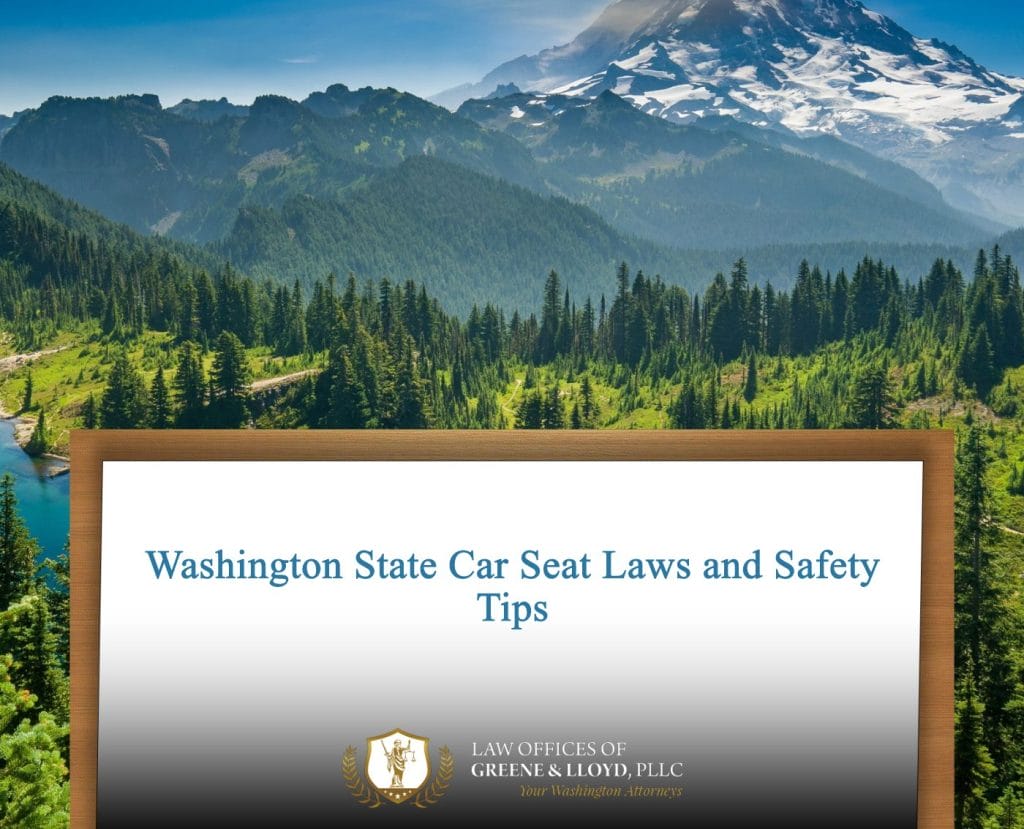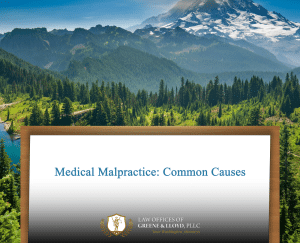## Understanding Car Seat Laws in Washington State
Car seat laws in Washington State are designed to ensure the safety of children while traveling in motor vehicles. These laws mandate specific requirements for child restraint systems, which have been shown to significantly reduce the likelihood of injury or fatalities in car accidents. These regulations aim to protect young passengers by making sure they are securely fastened in age-appropriate seats that provide the best possible protection.
The car seat laws in WA specify various criteria such as age, weight, and height of the child, which influence the type of car seat required. For instance, infants are required to be in a rear-facing car seat until they reach a certain weight or age, while older children may transition to booster seats. Ultimately, these laws reflect the state’s commitment to children’s safety, making it imperative for parents and guardians to understand and comply with them.
Additionally, law enforcement agencies actively monitor compliance with these laws, and violations can result in fines and other penalties. Not only can parents face legal repercussions, but they also put their children at risk by failing to adhere to these important regulations.
## Significance of Adhering to Car Seat Laws in WA
Understanding car seat laws in Washington State is vital not only for legal compliance but also for the safety and well-being of children. According to statistics, motor vehicle accidents are one of the leading causes of injury among children, and proper use of car seats can dramatically decrease the severity of these injuries. Compliance with statutory requirements, therefore, serves a dual purpose: safeguarding young lives and avoiding potential legal penalties.
Furthermore, failure to comply with these laws can lead to civil liability in the case of an accident. Parents who do not adequately restrain their children in a vehicle may face significant legal challenges should an accident occur. This can include lawsuits, medical expenses, and increased insurance premiums, which are not worth the risk when the right protective measures are readily available.
It’s essential for parents and guardians to realize that child car seat laws are not merely suggestions but legal requirements meant to protect the most vulnerable passengers. Educating oneself on these laws is an act of responsibility and a crucial step towards ensuring child safety during travel.
## Legal Framework of Car Seat Laws in Washington State
The legal framework governing car seat laws in Washington State provides a clear set of guidelines that dictate how children should be secured in a vehicle. These laws are formulated based on research and data, reflecting best practices in child safety. Washington’s legislation specifies the use of different types of car seats according to a child’s age, weight, and height. Understanding this framework can help prevent legal issues and, more importantly, keep children safer in transit.
Under Washington law, children under the age of 13 are required to be in the back seat of a vehicle whenever possible. For infants from birth until at least 1 year old or weighing less than 20 pounds, a rear-facing car seat is mandatory. Children between the ages of 1 and 4 must use a forward-facing car seat equipped with a harness, while those aged 4 to 8 must be properly restrained in a booster seat. Lastly, children who are 8 years old or taller than 4’9” can transition to using the standard seat belt.
These regulations are enforced through mandatory inspections set by law enforcement and safety programs funded by the state. Parents are urged to participate in car seat checks to ensure their child’s seat is installed and secured correctly. Non-compliance can not only attract legal penalties but also compromise a child’s safety in a vehicle.
## Real-Life Implications of Car Seat Laws in Washington
Real-world implications of car seat laws in Washington State can be significant, especially in the event of an automobile accident. Many parents may underestimate the crucial role that properly installed and age-appropriate car seats play in protecting children during accidents. Statistics reveal that nearly half of child car seat fatalities occur because the car seat is used incorrectly or is unsuitable for the child’s size.
For instance, consider a scenario in which a family is involved in a collision. If a child is not secured in the proper car seat or is seated inappropriately, the outcome can be grave. Legal ramifications often follow such incidents, where caregivers may face charges of negligence, particularly if it’s discovered that they violated designated car seat laws.
Another real-world consequence relates to financial liabilities incurred in a car accident. Insurance companies may investigate compliance with state laws when determining claims related to children’s injuries. If they find that a child was not secured properly, they could deny coverage, leaving parents facing hefty medical bills and possible legal repercussions.
## Steps to Ensure Compliance with Washington State Car Seat Laws
To ensure compliance with car seat laws in WA, parents and guardians need to take proactive steps. The first and foremost step is educating themselves about the specifics of the law as it pertains to car seats. This means knowing which type of car seat is appropriate for their child’s unique set of characteristics such as age, weight, and height. Understanding these requirements allows parents to make informed decisions when purchasing a car seat.
Another important step is to properly install the car seat. Many emergency services and child safety organizations provide free programs and clinics specifically aimed at helping parents with car seat installation. In cases with older models of cars or second-hand seats, parents are encouraged to verify the seat’s history, including any recalls. Proper installation is critical, as improperly installed car seats can diminish their effectiveness in the event of an accident.
Finally, regular checks on the car seat after installation are essential, as children’s growth can sometimes necessitate adjustments or transitions to different types of seats or boosters. Parents should re-evaluate whether their child meets the criteria for moving to the next stage of car safety and make changes accordingly.
## Common Pitfalls to Avoid Regarding Car Seat Laws in WA
Failure to understand and comply with car seat laws in Washington State can lead to various pitfalls that endanger children’s safety. One common mistake is underestimating the importance of age-appropriate restraint systems. Parents might assume that once a child reaches a certain age, they are safe to use a regular seat belt, thus neglecting the need for booster seats, which can be crucial for preventing injuries.
Another pitfall is improper installation of car seats. Many users neglect to consult the manual or follow the manufacturer’s guidelines, which can lead to mistakes in how securely the seat is installed within the vehicle. Even if the correct seat is used, if it is not correctly secured, the safety features may not work effectively during an accident.
Additionally, there’s a tendency among some parents to overlook the impact of using second-hand car seats. Parents should be cautious when acquiring used car seats, as these seats may have been involved in accidents or may not meet current safety standards. Knowledge about recalls and safety updates is vital to ensuring that every seat in use provides the necessary levels of protection.
## When to Seek Legal Guidance for Car Seat Issues
Consulting legal professionals regarding car seat laws in Washington State is advisable when parents face complex situations involving compliance or potential liability. For instance, if a child is injured in an accident and it’s unclear whether the car seat usage conformed to state laws, parents may need legal counsel to navigate liability questions and possible defensive actions.
Another scenario necessitating legal guidance is when a parent receives a citation for violating car seat laws. Understanding the legal implications of such a citation is crucial for determining the next steps, whether that involves assessing fines or challenging the violation based on evidence.
Moreover, parents should consider seeking legal advice in cases of shared custody. If one parent consistently violates car seat laws while transporting the child, the other parent may need to take legal action to ensure compliance and secure the child’s safety during travel. Abiding by established laws should not only be a personal responsibility but also a shared commitment among all involved caregivers.
## Advantages of Legal Representation for Car Seat Law Matters
Employing legal representation can prove beneficial for parents navigating the complexities of car seat laws in Washington State. A well-versed attorney can provide tailored guidance on how to comply with existing laws and avoid potential pitfalls, ensuring that families not only adhere to legal standards but also prioritize the safety of their children.
In circumstances where litigation may arise due to an accident or legal citation, legal representation becomes critical. An attorney experienced in car seat laws can advocate on behalf of families, helping them navigate the intricacies of the judicial system, fight unjust citations, or represent them in custody disputes that prioritize a child’s safety during transportation.
Furthermore, engaging legal representation offers peace of mind to parents. Knowing that skilled professionals are advocating for their rights and those of their children allows parents to focus on their family’s well-being without the added stress of legal complexities. An attorney can ensure that families are well-informed and well-prepared for different scenarios, ultimately making informed decisions that prioritize child safety.
## How the Law Offices of Greene & Lloyd, PLLC Can Assist You
The Law Offices of Greene & Lloyd, PLLC, serves as a valuable resource for parents seeking to understand and comply with Washington State car seat laws. Their dedicated team is well versed in the latest legal updates, ensuring families are informed about any changes that may impact their responsibilities. They recognize the importance of child safety laws and their implications for families throughout Washington State.
The firm offers consultations to discuss individual cases related to car seat compliance, legal citations, or injury claims. Their holistic approach emphasizes education and awareness, empowering parents to understand their legal rights while prioritizing the safety of their children. By offering tailored advice based on a comprehensive understanding of state laws, they help families make informed decisions regarding car seat usage.
Additionally, their commitment to children’s safety extends beyond legal representation. The Law Offices of Greene & Lloyd, PLLC are involved in community outreach focused on educating parents and guardians about car seat safety. Their efforts not only contribute to a safer environment for children but also establish meaningful connections with the families they serve in Washington State.
## Frequently Asked Questions About Car Seat Laws in Washington State
## Further Learning Resources
For those looking to deepen their knowledge about car seat laws and child safety, many resources are available. Washington State’s Department of Transportation website offers comprehensive guidelines and updates regarding car seat requirements, installation instructions, and other safety-related information.
Moreover, local child safety organizations often hold seminars and clinics that focus on car seat education, helping parents understand the nuances of installation, maintenance, and legal compliance. Parents can also consult pediatricians who may provide insights on the safest practices for transporting children.
Lastly, books and online courses focusing on child safety in vehicles can further enhance awareness. Staying informed ensures that parents are not only compliant with the law but are also actively contributing to the safety and well-being of their children while traveling.




